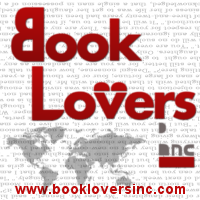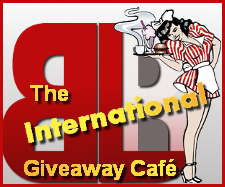Book Lovers Inc.
Romance Novel Reviews, Author Interviews, Commentary
Genres 101: Today’s Lesson ‘Literary Fiction"
 The question of what exactly is literary fiction has been circling around me a few times recently, and while I attempted to come up with a reasonable answer (it’s for smart people), I had to admit, I had no clue what the main difference is.
The question of what exactly is literary fiction has been circling around me a few times recently, and while I attempted to come up with a reasonable answer (it’s for smart people), I had to admit, I had no clue what the main difference is.
More frequently, I’ve been hearing about the loss of literary fiction reviewers/bloggers. More and more we are seeing genre fiction (also aptly named “popular fiction”) on blogging sites. I recently found this article that talks about literary authors turning to genre to sell books. So I ask: what is it about literary fiction that is making this happen? Let’s go back to my silly definition, “it’s for smart people” as a starting point. Genre fiction can sometimes also be referred to as “commercial” fiction, which to me has an underlining meaning of its sell-ability. More people spend, and are willing to spend, their money on tried and true, entertaining authors. On the opposite side of things, the literary novels appear more academic. A comment on this forum offers the distinction as being between “what sells and what is good” (harsh, don’t you think?!) The way I see it is kind of like this: if Joe Schmoe spends five years sequestered in his log cabin or a tent in the Himalayas writing his masterpiece (and hopefully not becoming the next uni-bomber, to boot) but he only sells twelve of them (mostly to his PhD owning mom), he would be considered a literary author.
Let’s go back to my silly definition, “it’s for smart people” as a starting point. Genre fiction can sometimes also be referred to as “commercial” fiction, which to me has an underlining meaning of its sell-ability. More people spend, and are willing to spend, their money on tried and true, entertaining authors. On the opposite side of things, the literary novels appear more academic. A comment on this forum offers the distinction as being between “what sells and what is good” (harsh, don’t you think?!) The way I see it is kind of like this: if Joe Schmoe spends five years sequestered in his log cabin or a tent in the Himalayas writing his masterpiece (and hopefully not becoming the next uni-bomber, to boot) but he only sells twelve of them (mostly to his PhD owning mom), he would be considered a literary author.
This website discusses the plot driven genre versus character driven literary stories. I think the difference is more complex than that, with literary involving more political, cultural, or human subtexts within its pages, making it a much more “thinking” book. I would imagine the word usage within literary books is at an elevated level, making it, at times, less reader friendly, in a general sense.
 It is almost oxymoronic to discuss Literary Fiction on my genre post here, seeing as avid literary readers see genre as an archenemy of sorts. These same people lament the loss of these educated reads as they look to the future and it appears grim. As I see it, it’s more of a blurring the lines between genre and literary, as evidenced by the first article noted above. Margaret Atwood is an author I’ve always felt would be considered literary, yet she has penned dystopic novels (a genre, most definitely!). Why does there have to be a thick black line between the two?
It is almost oxymoronic to discuss Literary Fiction on my genre post here, seeing as avid literary readers see genre as an archenemy of sorts. These same people lament the loss of these educated reads as they look to the future and it appears grim. As I see it, it’s more of a blurring the lines between genre and literary, as evidenced by the first article noted above. Margaret Atwood is an author I’ve always felt would be considered literary, yet she has penned dystopic novels (a genre, most definitely!). Why does there have to be a thick black line between the two?
I leave you with a few names of literary authors: Barbara Kingsolver, Toni Morrison, Robertson Davies, Paolo Coehlo, Kazuo Ishiguro, J.D. Salinger, Harper Lee, to offer only a few.
So, I want a show of hands: how many of you read what would be considered ‘true literature’? Do you agree with the definitions offered? What other great literary authors can you think of?
Share This Post
Subscribe and stay up-to-date
6 Comments
« Review: Hold Me by Lucianne Rivers Next Post
Review: "Tropical Sin" by Lexxie Couper »
















 Blog RSS Feed
Blog RSS Feed Follow Me on Twitter
Follow Me on Twitter My Facebook
My Facebook
If you just came up to me and asked "Do you read literary fiction?" I'd immediately say "NO", without hesitation. However, I've read 3 of the 5 books you've picked to show on the post… so maybe I'm not as shallow a reader as I thought I was 😀
Grrrr. Every time I see Margaret Atwood classified as a "literary" author, I flashback to how many years it took me to find a copy of The Handmaid's Tale in a bookstore. It was never in the SF section! Where it belongs. How, precisely, is Atwood's portrayal of gender and reproduction issues post-massive-societal-upheaval any less SF than Sheri Tepper's in The Gate to Women's Country?
Literary fiction, as a genre, is a pet peeve of mine. I never see any reason for the books classified as such to be separated from their more obvious genre counterparts. Then there is the snooty factor. It baffles me that so many who mock my SF obsession, revere Oryx & Crake as a bible of things to come, but wouldn't be caught dead reading The Windup Girl or Jennifer Government.
Thank you for posting such a thoughtful and thought-provoking piece of writing. I would like to point out that people who write about art often see things differently from those who create art. I talked to a beloved young adult authoress recently who told me she does not write young adult novels! So genre lines become even more blurry the more we discuss them.
To me, the difference is in what writers can get away with. For example, I read "The Book Of Ruth" by Jane Hamilton earlier this year. The book is almost entirely Ruth's internal monologue. Now I am reading romance novels. They are mostly pursuit narratives, leading up to the heroine and hero living happily ever after.
Ruth meets and falls in love with a guy, but things don't go so well. If you wrote a romance novel that was all inner thought with an ambiguous ending, you couldn't sell it as romance. And if Jane Hamilton said things like "their eyes met in a smoky embrace that made Ruth's body warm like a bed of hot coals," then she wouldn't have a literary novel anymore.
It makes me a little sick to hear people bashing either genre novels or literary novels. Either one offers a worthwhile experience, and no critic, teacher, or book reviewer has the right to tell another person what she can or cannot read.
Probably the biggest difference is simply how many years something manages to hang around and be continuously read and appreciated. If say, there's a copy of Mary Joy Putney's "Thunder and Roses" still hanging around in 100 years, somebody reads it and writes about it in an academic way, somebody else reads it and disputes the first critiquers thoughts about it, we'll probably have a new classic LitFic on our hands. dick
In a more serious vein, litfic probably evokes more thought than genre fiction, thought that has more to do with existence in general than genre fiction does.
In the end, we probably have to fall back on Persig's dictum that we maybe can't define the difference, but we know it when we see it.
Great post! Drawing a line in the sand to separate books (the same way they do with music and film) is purely a marketing tool. Dracula was considered genre in its day,the way any other vampire book is today. I agree with other posters that separating Atwood's Handmaid's Tale from the Sci Fi section makes as much sense as Cormac McCarthy's The Road does.
As a writer,it becomes another issue if you want to be taken "seriously" as an author. This is where the snooty factor comes in. If you write romance, and then want to pitch a literary novel under the same name – forget it. This is why I write under three different names! So buckle up kiddies, it's always going to be a bumpy publishing ride. Just read what you like, and write what you like! 😉
wandre3000@yahoo.com
I like to think that I stopped reading literary fiction after I graduated from college. I don't read anything on the Best Sellers lists. I tell people I only read genre fiction and non-fiction. I don't care to read about the "human condition" (unless it's a mystery, sci-fi, romance, or YA). Even though I want character development in my reads, I want a plot. Yes, I'm still bitter over being made to read "Waiting for Godot" (about nothing and not remotely as entertaining as "Seinfeld") in college.